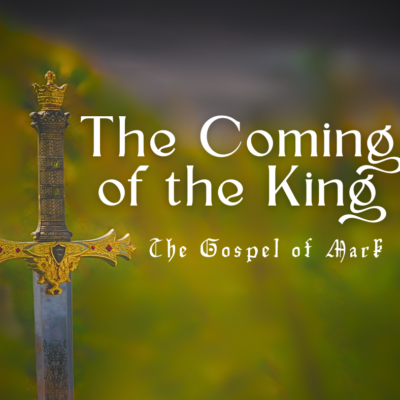"Conflict" Tagged Sermons
Our New Testament reading. It’s nice to ease into new tunes. Our New Testament reading from Mark chapter six, we continue to look at Mark’s gospel. The panting gospel is called historically because it’s immediately and fast and fast moving, as Mark writes it. But before we hear from our text, let’s ask the Lord’s…
For the ancient Hebrew, if you were to ask them about the sea, they would say that it was a place of great chaos, dread-waters, and danger. In this section of Mark, the disciples find themselves in the middle of all that water represents in the Old Testament. Christ takes on this source of evil and rebukes it. In confronting the sea, Christ is really confronting the enemies of God and his people. He says to that great enemy of our souls, “Be still, and be silent!”
The Pharisees come to Jesus and ask, “Why is it your disciples are allowed to do that which is impermissible on the Sabbath?” You’d think Jesus would cite a text about the Sabbath and say, “Here’s why: it’s not really breaking the law of God. The law, in Deuteronomy actually gives us permission to glean. You guys are missing the point.” But Christ doesn’t do that. Instead, he goes to this seemingly random, interesting, odd text, about David on the run from Saul eating the bread of the Tabernacle. You have to ask yourself why he chose this particular text as a defense for his actions. In essence, his argument is this: “Long ago, David did this thing, in a particular circumstance. And this circumstance should remind you of what’s going on now.”
Next, Christ says they can do so, because he is the one who can authorize such a thing as Lord of the Sabbath. This pushes the offense over the top, into a whole other category for the Pharisees.
Lastly, Christ goes on to show the true intention of the day. How grateful can we be that Christ gives us not the explanation we would expect, but the revelation we need.
If the Kingdom of God is here now, what mood are we supposed to be in, festive or fasting? Is Christ removed for us now? So fasting does have a role now. But even for those of us that live apart from Christ physically, we see that a new age has dawned. The Day of Salvation has been granted by faith. While fasting has it’s place, it is not the tenor and tone of the Christian life.
We’re confronted, as we open this passage, with questions–questions about the Kingdom. Who gets into the Kingdom? What are the qualifications for getting into this Kingdom?
Are we willing to be self-reflective enough to realize that, at the end of the day, we have nothing to offer God of our own righteousness?
Only then do you have any chance of joining the Kingdom of God.
What is most needful in life? If someone were to ask you that, how would you answer? In this passage, we see a man lying before Jesus paralyzed, and Jesus’ comment takes everyone by surprise: “Your sins are forgiven you.” It seems insensitive that this man is dealing with obvious physical need, and yet, Christ is bringing up the forgiveness of sins instead. By placing this in the text, Christ–through Mark– is making us reckon with some big questions. Not only does this cause cognitive dissonance, it makes a bold statement about who Christ is and the coming of the Kingdom. Christ is trying to show us something. The question is: “Will you see it?”
Join us as we learn about the conflict that results from King Jesus coming into the kingdom of the world.



